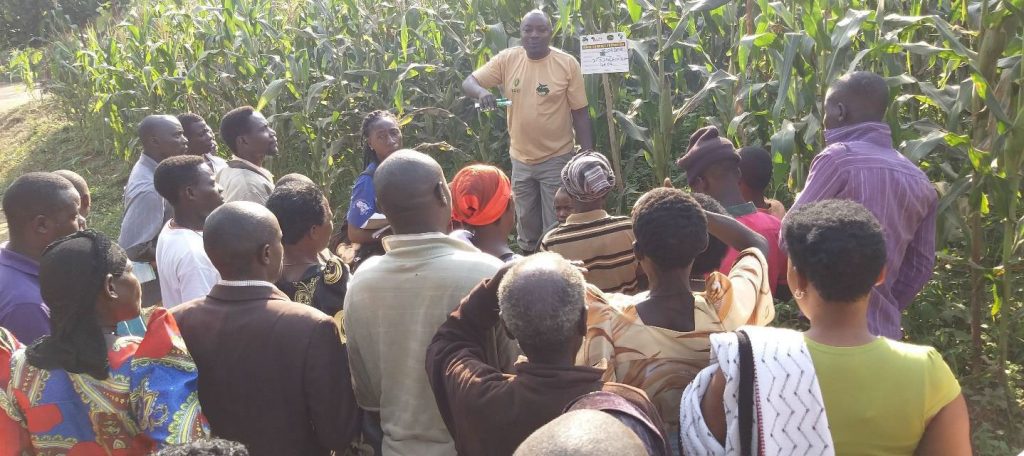Fall armyworms (FAW) are the caterpillar stage of moths, native to the Americas but recently reported in Africa where they are ravaging staple crops, particularly maize, leaving in their wake a trail of serious crop destruction (with 50 -100% crop losses).
First reported in Nigeria in 2016, the FAW has since spread to and established in all maize growing areas of Sub Sahara Africa and poses the greatest threat for security. In response to this FAW emergency, the TAAT Maize Compact in collaboration with the TAAT FAW Enabler and other partners explored deployment of Fortenza Duo, a seed treatment chemical developed by Syngenta.
This is a systemic treatment that offers protection to maize crops up to 4 weeks after germination, which is usually the most critical stage in maize growth. This technology also ensures use of chemical sprays by farmers is kept to a minimal which translates lower cost of production.
The TAAT Maize Compact and partners facilitated rapid deployment of Fortenza Duo seed treatment technology in Zambia and Zimbabwe where 14 seed companies were provided with over 36,000 liters of Fortenza Duo to treat 6000 MT of climate smart maize varieties.
To date, these seed companies have managed to use over 17,440 liters of the chemical to treat about 3,007 MT of seed that have all been deployed to farmers through National Programs (Farmer Input Support Programme – FISP in Zambia and the Command Agriculture/Presidential Schemes in Zimbabwe) and Agro dealers and Direct marketing in the two countries. This effort has deployed Fortenza Duo treated seeds to over 300,000 farmers in Zimbabwe and Zambia covering about 120,280 Ha of farmland. Plans are underway to treat other seeds in the first season of 2019, to target farmers in Eastern and Western Africa.

Very encouraging feedback was reported during recent follow up missions in Zambia and Zimbabwe where farmers expressed extreme excitement having witnessed clear differences between Fortenza Duo and non-Fortenza duo treated seed.
One particular farmer in Masaiti District in Zambia who had planted both farmer saved seed and Fortenza Duo treated seed from MRI Company said that, ‘Our problems are solved! I hope these seeds will be available in subsequent seasons so that we won’t plant our local varieties anymore’.

